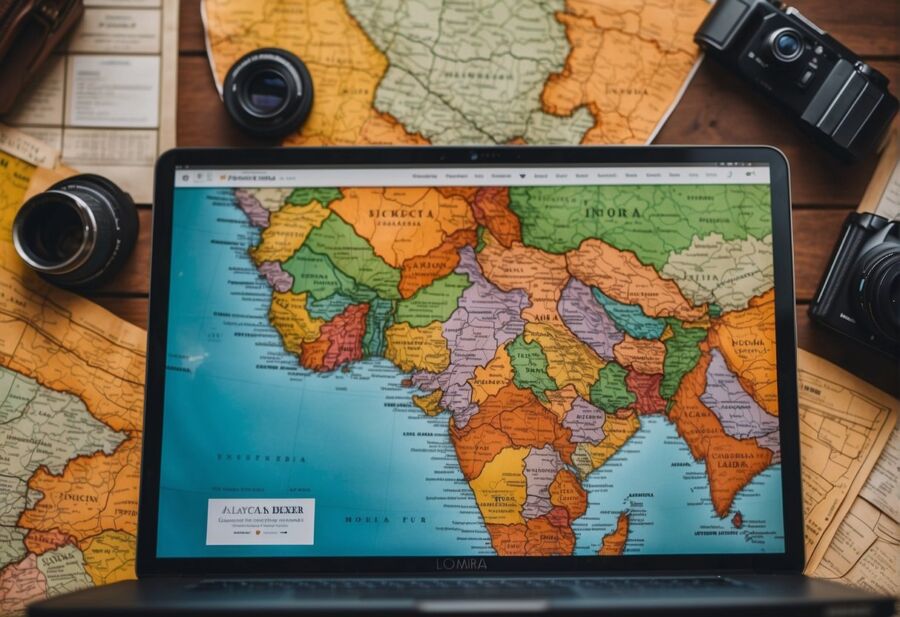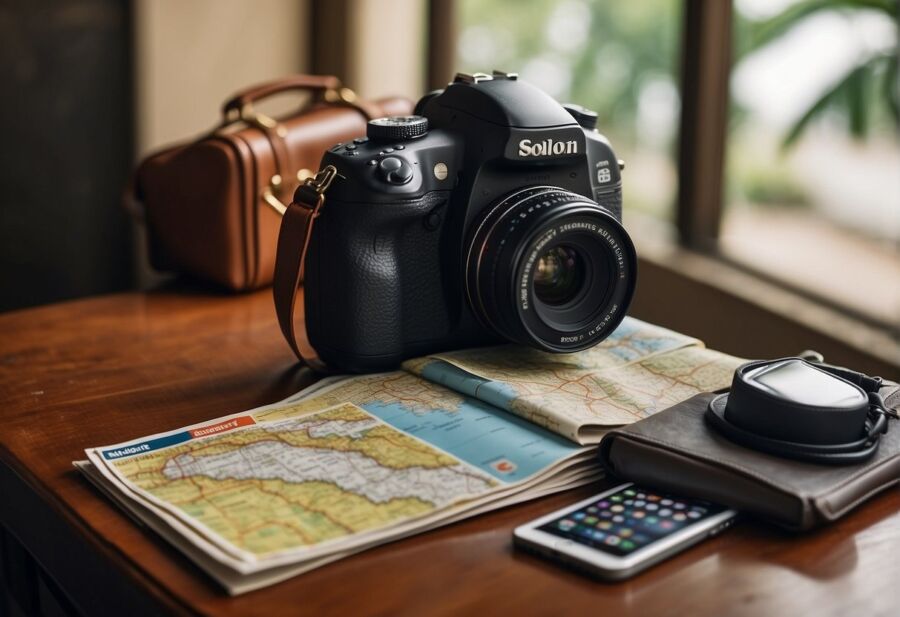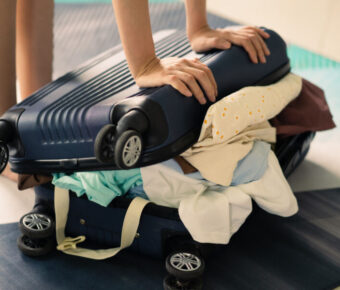
The Ultimate Guide to Solo Travel Safety in 2025
Embarking on a solo adventure can be thrilling, but it’s crucial to prioritize your safety. As you plan your journey, remember that being prepared is key to a worry-free experience. By following smart safety practices and using the right tools, you can significantly reduce risks and enjoy your solo travels with confidence.
Consider equipping yourself with personal safety devices like a doorstop alarm for hotel rooms or a GPS tracker that connects to your smartphone. These gadgets can provide an extra layer of security and peace of mind. Additionally, download safety apps that allow you to share your location with trusted contacts or quickly alert authorities in case of an emergency.
Research your destination thoroughly before you go. Familiarize yourself with local customs, common scams, and safe areas to stay. Choose accommodations in well-lit, populated areas and always trust your instincts. With the right preparation and mindset, you can embrace the freedom of solo travel while staying vigilant and secure.
Contents
Choosing Safe Destinations

Researching potential destinations is crucial for solo travel safety. Look for places with low crime rates and positive traveler reviews. Government travel advisories can provide valuable safety information about different countries.
Consider starting with destinations known for being solo traveler-friendly. Countries like Japan, New Zealand, and Iceland often rank highly for safety and ease of navigation.
Urban areas tend to have more safety resources but may also have higher crime rates. Rural destinations can offer tranquility but may have limited emergency services. Balance these factors based on your comfort level.
Climate and natural disaster risks are important to evaluate. Check for any seasonal weather concerns or geological hazards in your chosen location.
Safety Apps for Destination Research:
- GeoSure: Provides safety scores for neighborhoods worldwide
- Smart Traveler: Offers U.S. State Department safety info and alerts
- TripWhistle: Connects you to local emergency services globally
Language barriers can impact your safety. Choose destinations where you speak the language or where English is widely understood.
Consider the local attitudes towards solo travelers, especially if you’re a woman. Some cultures may be more welcoming to independent travelers than others.
Remember, no destination is 100% safe. Trust your instincts and stay vigilant wherever you go.
How to Stay Alert in Crowded Areas

Crowded areas require extra vigilance when traveling solo. Keep your belongings close and use a cross-body bag or money belt to deter pickpockets.
Stay aware of your surroundings by avoiding distractions like headphones or excessive phone use. Scan the area regularly and trust your instincts if something feels off.
Consider using a personal safety app that allows you to share your location with trusted contacts. Some apps even have SOS features for emergencies.
When navigating crowds, walk confidently and purposefully. Avoid looking lost or vulnerable. If you need to check directions, step into a shop or less crowded area.
Be cautious of common distraction techniques used by thieves, such as someone “accidentally” bumping into you or creating a commotion nearby.
Use RFID-blocking wallets or sleeves to protect your credit cards and passport from electronic pickpocketing in densely packed areas.
Stay hydrated and take breaks when needed. Fatigue can lower your alertness, making you an easier target. Find a safe spot to rest and recharge periodically.
Consider joining a reputable guided tour in unfamiliar or particularly crowded destinations. This can provide an added layer of security while still allowing you to explore.
Using Safety Apps

Safety apps can be your digital travel companions, providing peace of mind as you explore the world solo. Download and familiarize yourself with these apps before your trip.
Essential safety apps for solo travelers:
• Ride-hailing apps (Uber, Lyft) – Use their built-in safety features
• LastPass – Securely store passwords and important information
• Signal – Encrypted messaging for private communications
• StrongVPN – Protect your data on public Wi-Fi networks
Women-specific apps like Tourlina can help you connect with verified female travel companions for added security and friendship.
Many safety apps offer location sharing. Enable this feature with trusted contacts so they can track your whereabouts if needed.
Consider installing personal safety apps that allow you to quickly alert emergency contacts or authorities with the press of a button. Test these features before you depart.
Remember to keep your phone charged and carry a portable battery pack. Your safety apps are only useful if your device is powered on.
While apps enhance safety, they shouldn’t replace common sense and awareness of your surroundings. Use them as tools to complement your own vigilance and travel smarts.
Protecting Your Belongings

When traveling solo, safeguarding your possessions is crucial. Always keep your valuables close and use anti-theft bags to deter pickpockets. These specialized bags often feature hidden zippers and slash-proof materials.
Consider using a money belt or neck wallet to store cash, cards, and important documents. These discreet accessories can be worn under your clothing, keeping your essentials safe and out of sight.
Invest in a portable safe or lockbox for your accommodation. This provides an extra layer of security for items you don’t need to carry with you daily.
Use luggage locks on your bags, especially when leaving them in shared spaces or during transit. Smart locks with Bluetooth connectivity allow you to monitor your belongings remotely.
Download safety apps like “Find My Device” to track your electronics if they’re misplaced or stolen. Many of these apps also offer remote locking and data wiping features.
When dining or in public spaces, keep your bag on your lap or between your feet. Avoid hanging it on the back of your chair where it’s an easy target for thieves.
Divide your money and cards between different secure locations. This way, if one stash is compromised, you’ll still have access to funds elsewhere.
Remember to be discreet with valuable items. Flashing expensive gadgets or jewelry can make you a target. Keep them concealed when not in use to avoid unwanted attention.
Local Laws & Etiquette

Research the laws and customs of your destination before you go. What’s legal at home may be prohibited elsewhere. Download a local laws app for quick reference on the go.
Dress codes can vary widely between cultures. Pack appropriate clothing to avoid unwanted attention or offending locals. A scarf or wrap is versatile for covering up when needed.
Learn basic etiquette for greetings, dining, and public behavior. Small gestures of respect go a long way. Use a translation app to learn key phrases in the local language.
Be aware of photography rules, especially around religious sites or government buildings. Ask permission before taking photos of people.
Respect alcohol and drug laws. What’s acceptable in one country may carry harsh penalties in another. Stay informed and err on the side of caution.
Familiarize yourself with local scams targeting tourists. Install a trusted VPN app to protect your data when using public Wi-Fi.
Carry a small guidebook on local customs. It can be a helpful reference for navigating social situations with confidence.
Emergency Numbers to Keep Handy

When traveling solo, having quick access to emergency numbers can be a lifesaver. Create a list of essential contacts and save them in your phone and a physical copy.
Start with the local emergency services number. In many countries, it’s 911, but research the specific number for your destination.
Add the contact information for your country’s embassy or nearest consulate. They can provide crucial assistance in emergencies.
Include the number for your travel insurance provider. They often offer 24/7 support and can guide you through medical situations.
Save the contact details of your accommodations. Many hotels have security staff who can help in urgent situations.
Don’t forget to add a trusted friend or family member as an emergency contact. Keep them informed of your travel plans.
Consider downloading safety apps like bSafe or TripWhistle. These can quickly connect you with local emergency services and share your location.
Create a small card with these numbers and keep it in your wallet. This backup ensures you’re prepared even if your phone is lost or stolen.
Remember to update this list for each new destination. Stay empowered by being prepared for any situation during your solo adventures.
Solo Traveler Insurance Tips

Travel insurance is essential for solo adventurers. Make it a priority when planning your trip.
Look for policies that cover medical emergencies, trip cancellations, and lost luggage. Compare options from different providers to find the best fit for your needs and budget.
Consider adding coverage for adventure activities if you plan to hike, ski, or scuba dive. Many standard policies don’t include these.
Download your insurance provider’s app. It can help you locate in-network hospitals and file claims easily while on the go.
Keep digital and physical copies of your policy details. Store one in your luggage and one in a secure cloud service you can access from anywhere.
Don’t forget to insure valuable gear like cameras or laptops. Check if your policy covers them or if you need additional protection.
Invest in a GPS-enabled personal safety device. Some insurance companies offer discounts for using these gadgets that can alert authorities in emergencies.
Read the fine print carefully. Understand what’s covered and what’s not before you depart. This knowledge can save you headaches later.
Set up travel alerts with your insurance provider. They can keep you informed about safety issues or policy changes that may affect your coverage.
Remember, travel insurance gives you peace of mind. It allows you to explore with confidence, knowing you’re protected against unexpected situations.




Taryn
Hey fellow solo travelers! I’ve been reading up on safety tips for 2025, and it’s got me thinking about how tech is changing the game. Anyone tried those new AI-powered translation earbuds? I’m wondering if they’re worth the splurge for navigating tricky situations abroad. And what about those smart luggage trackers – do they actually work when you’re off the grid? I’d love to hear your experiences with the latest gadgets and apps for staying safe on solo adventures. Oh, and has anyone mastered the art of blending in like a local? I’m always looking for sneaky ways to avoid looking like a tourist target!